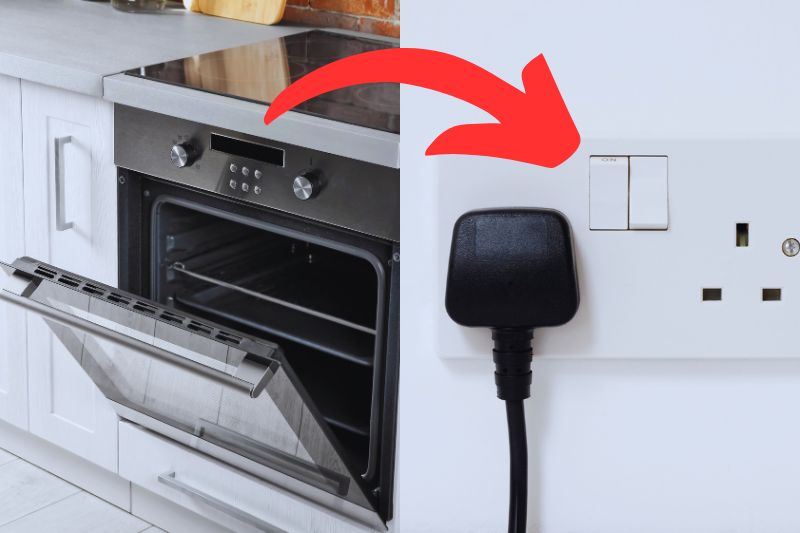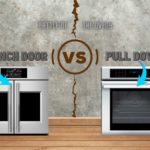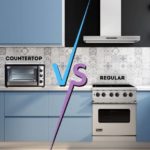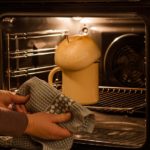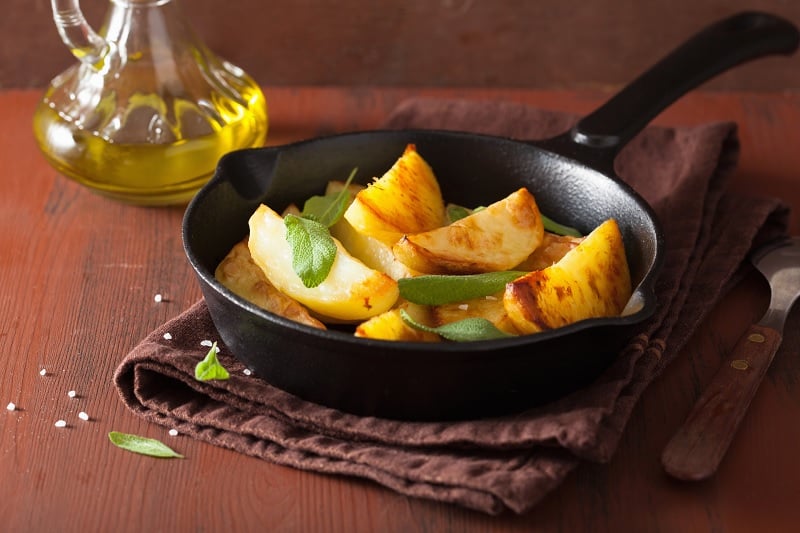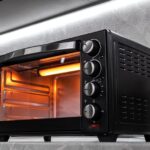Turning off appliances at the wall when not in use can be a good practice for energy conservation and safety, but it depends on the specific appliance and your personal preferences.
As one of the most commonly used appliances in the home, you might wonder whether your electric oven falls into this category.
Should you turn your oven off at the wall when not using it? Or is it better to leave it plugged in? We answer these questions and more here, so keep reading to find out!
Should You Unplug My Oven at the Wall After Using It?
Turning off your oven at the wall when not in use is generally unnecessary and may not be practical for most households.
Electric ovens are designed to be turned on and off using their built-in controls. As long as you switch the oven off after cooking using these dials, you’re doing the right thing.
If you’re worried about energy consumption in your oven while it’s on standby, don’t worry. Modern electric cookers typically consume minimal standby power when not in use.
Simply turning off the oven using its controls is sufficient to prevent it from using electricity when off.
Additionally, some ovens have energy-saving modes that can further reduce power consumption while not in use.
Some other tips to help you lower the cost of running an electric oven include:
- Preheating the oven only when necessary to avoid using extra power.
- Avoid opening the oven door frequently so the oven interior can accurately maintain the desired temperature. You should also keep the door closed when grilling food in the oven.
- Cooking multiple dishes simultaneously to make the most efficient use of the capacity.
- Cleaning your oven regularly. A clean oven is more energy-efficient, as built-up residue can interfere with heat distribution.
- Using other appliances (countertop mini-ovens or microwaves) for smaller cooking tasks, as these generally use less energy than a full-sized oven.
Is It OK to Turn the Oven Off at the Wall?
If you want to turn your oven off at the wall after use, nothing is stopping you. In fact, sometimes you will need to unplug your oven. Perhaps you’re having your kitchen remodelled, moving home and taking your appliances, or need to carry out oven repairs.
However, unless you have a specific reason to do so, we advise you not to unplug your oven after use for two main reasons:
1. You’ll have to reset the clock constantly
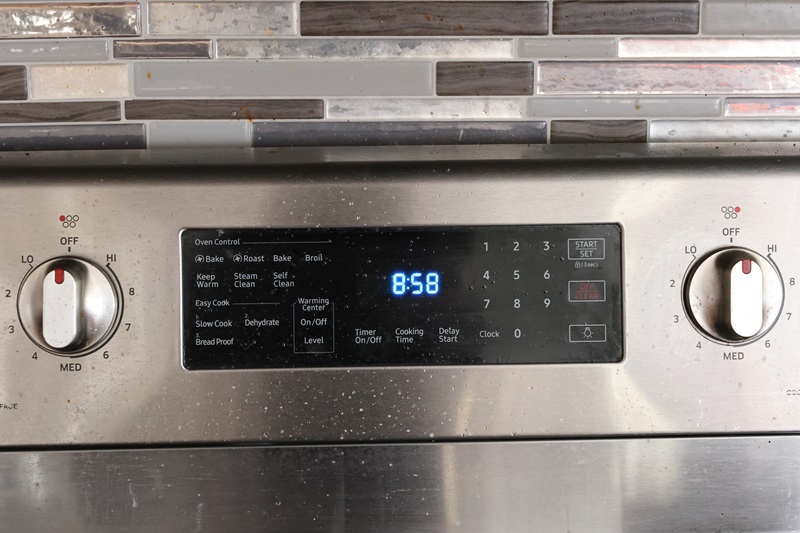
Many modern ovens have electronic controls with built-in clocks and timers that rely on a continuous power supply.
When you turn off the oven at the wall, you cut off power to the appliance, which can lead to the loss of stored information—this includes the clock settings and any programmed timers.
This might sound like a minor inconvenience if you don’t use programmed timer settings or rely on your oven to tell the time.
However, many electric ovens won’t work or heat up if the clock and timer are not set correctly. Every time you want to cook, you’ll have to turn your oven on at the wall, reset the clock and timer, and then begin cooking.
2. It may contribute to wear and tear
Constantly switching your oven on and off at the wall could potentially lead to wear and tear on the electrical components.
It’s generally recommended to leave appliances like ovens connected to power to minimise damage unless there’s a specific reason to disconnect them.
Below are examples of the wear and tear that frequent unplugging may cause:
- The metal contacts in the plug and the receptacle can wear down with frequent plugging and unplugging into a socket, which might lead to a less secure connection. If done carelessly, you might bend or break the prongs on the plug.
- When you unplug an appliance, there can be a brief spark or electrical discharge at the plug contacts. Over time, this can contribute to wear and erosion of the contacts, and your oven might not last as long as expected.
- Unplugging your oven might expose it to power surges when plugged back in. While most modern ovens have some level of surge protection, repeated exposure can damage sensitive electronic components over time.
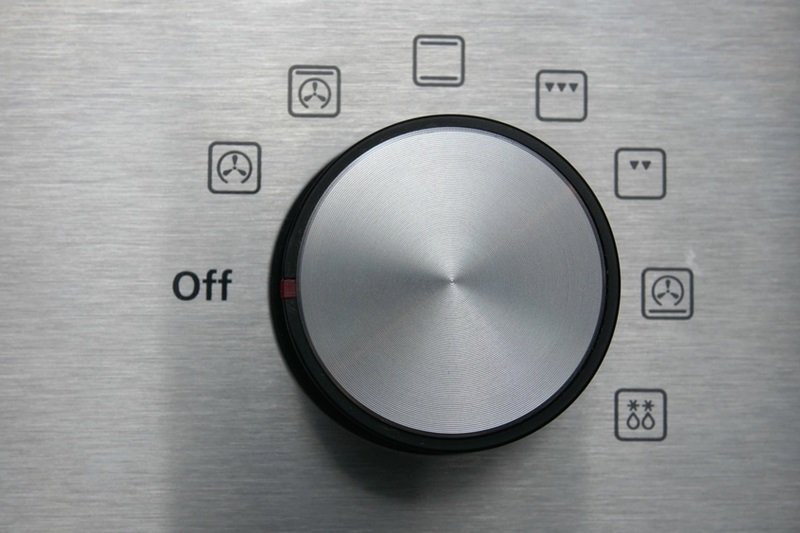
Why Is It Important to Turn Off the Oven?
Although you don’t need to unplug your oven from the wall after use, turning it off promptly using the dials and controls is essential for maximising safety and energy efficiency.
Here’s a closer look at the reasons turning an oven off is important:
- Fire safety: Leaving an oven on can pose a significant fire risk. If there are any spills, food particles, or flammable materials inside the oven, they could catch fire. Turning off the oven when not in use reduces the risk of fire accidents.
- Energy conservation: Ovens consume a significant amount of energy to generate and maintain high temperatures. Keeping the oven on unnecessarily contributes to energy waste, whereas turning it off when cooking is complete helps to reduce your utility bills.
- Oven lifespan: Just as frequently unplugging your oven can lead to wear and tear, so does continuous operation. Regularly turning off the oven when it’s not needed can extend the lifespan of your oven.
What Kitchen Appliances Should You Unplug to Save Energy?
Unplugging your oven after use isn’t convenient, but unplugging other kitchen appliances when not in use can help save energy and reduce appliance electricity costs.
Here are some appliances you may consider unplugging to keep your energy bills down:
- Toaster and toastie makers
- Coffee machines
- Electric kettles
- Blenders and food processors
- Stand mixers
- Under cabinet lighting
Like ovens, other kitchen appliances are designed to be left plugged in for continuous operation. This includes fridges, freezers, and microwave ovens.
Turning off these appliances at the wall may result in the loss of important functions, such as temperature control or timer settings.
To make it more convenient to manage the power usage of multiple household appliances, you can use power strips with switches in your kitchen. This way, you can quickly turn off multiple appliances at once when they are not in use.
Always follow the manufacturer’s guidelines and safety recommendations when unplugging and using kitchen appliances.

Hannah is a freelance content writer and self-proclaimed foodie. When Hannah isn’t sitting tapping at her laptop, you’ll probably find her in the kitchen. As an ex-chalet host, she’s used to cooking four-course meals for 10+ people and loves feeding friends and family whenever possible.

